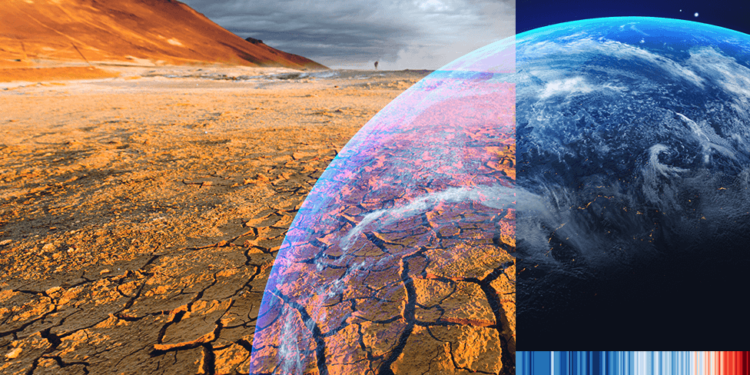Climate change is the long-term alteration of the Earth’s climate, caused by human activities, such as the burning of fossil fuels and deforestation, and natural processes, such as changes in the sun’s intensity. Over the past 100 years, the Earth’s climate has undergone significant changes, including an increase in global average temperature, a rise in sea level, and more frequent extreme weather events.
One of the most visible effects of climate change over the past 100 years has been the increase in global average temperature. According to data from the National Oceanic and Atmospheric Administration (NOAA), the average global temperature has increased by about 1.8 degrees Fahrenheit (1 degree Celsius) since the late 19th century. This may not sound like a lot, but it has had significant impacts on the Earth’s climate, including more frequent heatwaves, droughts, and wildfires.
Another major effect of climate change over the past 100 years has been the rise in sea levels. As the Earth’s temperature increases, the polar ice caps and glaciers melt, causing sea levels to rise. According to data from the National Aeronautics and Space Administration (NASA), the global sea level has risen by about 8 inches (20 centimetres) since the early 20th century. This may not seem like much, but it has already caused flooding in coastal areas and is expected to have more severe impacts in the future.
In addition to these changes, climate change has also led to more frequent and intense extreme weather events. For example, over the past 100 years, there has been an increase in the number of hurricanes, tornadoes, and other severe storms. These events can cause significant damage to infrastructure, as well as loss of life and property.
One of the main drivers of climate change over the past 100 years has been the burning of fossil fuels, such as coal, oil, and natural gas. These fuels release large amounts of carbon dioxide and other greenhouse gases into the atmosphere, which trap heat and cause the Earth’s temperature to rise. In addition, deforestation and other human activities have contributed to climate change by removing carbon sinks, such as forests, that absorb and store carbon dioxide.
While the effects of climate change have been significant over the past 100 years, they are expected to become even more severe in the future. If we do not take action to reduce our greenhouse gas emissions and slow the rate of climate change, the impacts will continue to worsen, with potentially catastrophic consequences for the Earth and its inhabitants.




Recent Comments